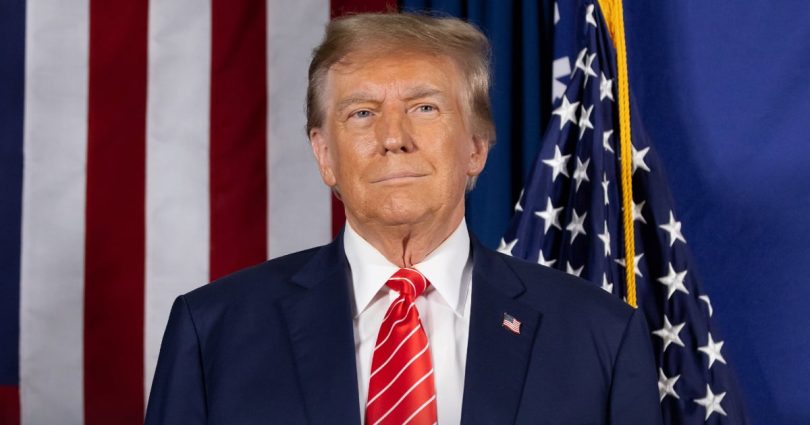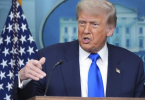The President of the United States, Donald Trump, signed a presidential memorandum on Monday that tightens U.S. policy towards Cuba and reverses the approach previously taken by the Joe Biden administration.
The information was confirmed by Reuters, citing a White House official who spoke on the condition of anonymity.
The new memorandum prohibits tourism for U.S. citizens to the island and reinforces the existing economic embargo, thereby reaffirming restrictions on transactions with Cuba.
According to the source cited by the agency, the decision aims to align U.S. foreign policy with a firmer stance towards the Cuban regime, in contrast to the more flexible approach promoted during the Biden administration.
What does the new memorandum signed by Trump propose?
The text, published on the website of the White House, states that the goal of the new policy is to restore the firm approach that characterized Donald Trump’s first term and to undo the relaxations introduced by the Biden administration.
The memorandum states that it is necessary to put an end to economic practices that disproportionately benefit the Cuban regime—particularly the military, intelligence, and security institutions—at the expense of the Cuban people.
To this end, a prohibition is established on all financial transactions, direct or indirect, with entities controlled by the military apparatus, such as the powerful GAESA conglomerate and its subsidiaries, except for those operations deemed compatible with the strategic interests of the United States or that directly contribute to the well-being of the island’s people.
The document also prohibits U.S. tourism to Cuba and mandates strict compliance with this measure through periodic audits and the mandatory maintenance of detailed records of all travel-related transactions for a minimum of five years.
The White House states that tourism not only represents a source of income for the regime but has also been used to circumvent previous restrictions.
Furthermore, the memorandum reinforces the existing economic embargo, clearly expressing a stance of rejection against any attempts, from the United Nations or other international organizations, to demand its removal.
The Trump administration maintains that the embargo remains a legitimate tool to pressure the regime to implement real political reforms and respect the fundamental rights of its citizens.
As part of its policy to support civil society, the text emphasizes the need to promote free access to the internet, strengthen press freedom, encourage independent private enterprise free from state control, and guarantee the freedom of association within the country.
It also demands continuous scrutiny of human rights violations, including arbitrary detentions, inhumane treatment of political prisoners, reprisals against the families of dissidents, harassment of religious individuals, and repression of social organizations.
The memorandum maintains the repeal of the “Wet foot, dry foot” policy, as it was deemed to encourage illegal migration and jeopardize the lives of those attempting to reach the United States by sea.
Finally, he orders the preparation of an updated report on American citizens wanted by justice who reside in Cuba or are protected by the regime, alluding to the lack of cooperation from Havana in judicial and security matters.
With this directive, the Trump administration asserts that all bilateral interactions must aim to promote a free, prosperous, and democratic Cuba, and that the United States’ commitment will be to the Cuban people, not to those who oppress them.
Frequently asked questions about Trump’s new restrictions on Cuba
What measures has Trump taken to strengthen the embargo on Cuba?
Donald Trump signed a presidential memorandum that prohibits American tourism to Cuba and strengthens the existing economic embargo. The measure also requires individuals and entities involved in authorized travel to maintain detailed records of their transactions for at least five years.
Why did Trump reinclude Cuba on the list of state sponsors of terrorism?
The Trump administration reinstated Cuba on the list of state sponsors of terrorism to financially sanction the Cuban regime and further isolate it within the global banking system. This decision aims to pressure the Cuban government to make structural changes and cease support for international terrorist activities.
How does Trump’s policy impact remittances sent to Cuba?
Trump reestablished sanctions against the company Orbit S.A., controlled by GAESA, which manages remittances to Cuba. This measure prohibits U.S. companies from conducting transactions with Orbit S.A., making it more difficult to send remittances to the island and impacting the flow of foreign currency to the Cuban regime.
What impact do these measures have on the Cuban people?
Trump’s measures aim to pressure the Cuban regime, but they also have a negative impact on the population. The restriction on remittances and the tightening of the economic embargo make it harder to access basic resources and increase economic difficulties on the island.










